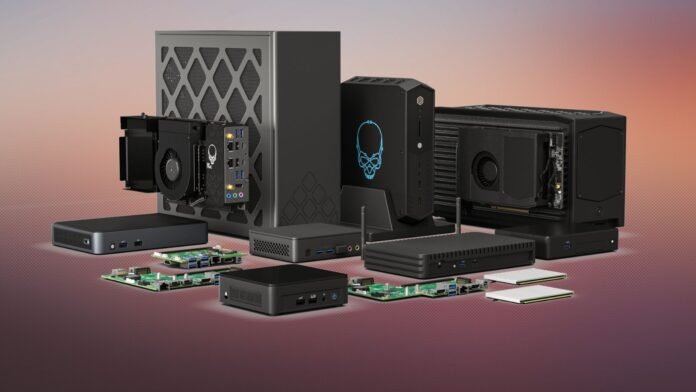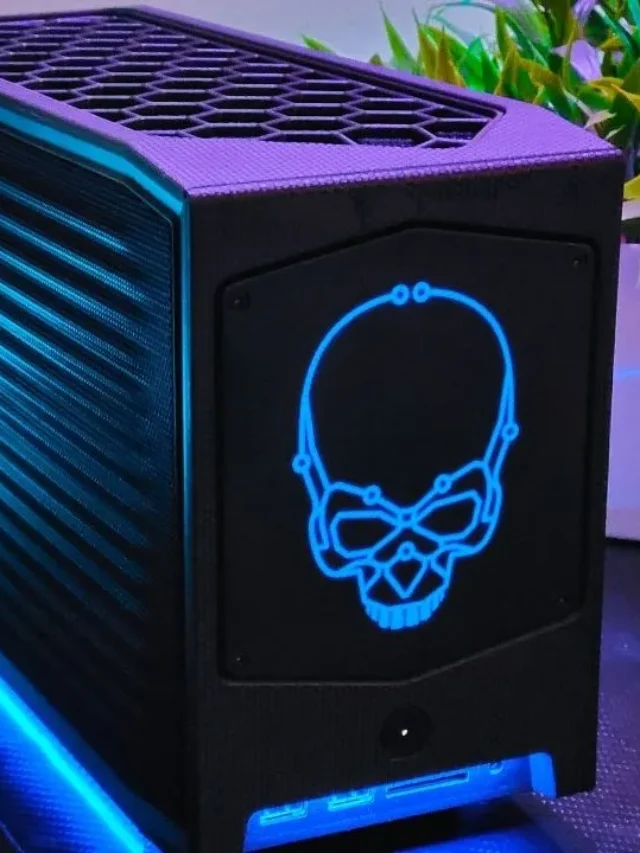Intel NUC, the Next Unit of Computing (NUC) machines from Intel are small and upgradeable, however, the company recently declared that it would stop making them. ASUS, on the other hand, has stepped in to fill the gap by signing a non-exclusive contract with Intel. ASUS will take over the production and development of upcoming NUC products as part of this deal. Customers may transfer seamlessly thanks to this partnership, which also permits the NUC legacy to live on. In this post, we’ll examine the specifics of the Intel-ASUS collaboration, how it affects the NUC product line, and how small PCs are important to PC gaming and building communities.
Also Read: Intel Unveils the Core Ultra and Core Series: New Intel Consumer CPUs Rebranding
The Intel-ASUS Partnership: A New Era for Intel NUC
ASUS has taken over the production, sales, and support of 10th to 13th Gen NUC systems, making it Intel’s first partner in the Intel NUC market. The non-exclusive arrangement gives ASUS the freedom to create future NUC models based on upcoming Intel processors. This collaboration represents Intel’s strategic move towards empowering ecosystem partners to stimulate innovation and market expansion for NUCs. Intel wants to maintain the NUC product line while concentrating its resources on core chip-making capabilities by utilizing ASUS’ experience in producing tiny PCs.

ASUS’s Role in the Intel NUC Ecosystem: Manufacturing and Support
In accordance with the contract, ASUS will create a brand-new business unit dubbed “ASUS NUC BU” to manage all aspects of Intel’s NUC systems. The company will be in charge of creating, marketing and providing support for current NUC systems. ASUS is the right partner to continue fostering innovation and expansion in the NUC product line due to its track record of producing tiny PCs that lead the industry. In addition to guaranteeing the availability of NUC devices, this arrangement creates possibilities for future partnerships between Intel and other PC manufacturers.
The Future of Intel NUC: ASUS’s Development of Next-Generation Designs
ASUS is allowed to create its own NUC systems in the future thanks to Intel’s non-exclusive license. As a result, we may anticipate ASUS continuing the NUC legacy past the 13th Gen and possibly launching the NUC 14 series. Although the specifics of the next designs are being kept a secret, ASUS is known for pushing the limits of tiny PC technology. The high-performance Raptor Canyon or Serpent Canyon systems are among the unique NUC designs that gamers, in particular, eagerly await ASUS’s prospective development of.
Intel’s Shift in Strategy: Focusing on Core Capabilities
The decision by Intel to collaborate with ASUS and refrain from making direct investments in the production of NUCs is in line with the business’s plan to focus on its core competencies. Intel may more effectively deploy resources to its chip-making processes by dumping non-essential companies like the first-party NUC production. With this strategic change, Intel is better able to respond to the difficult computing market and concentrate on satisfying the rising demand for high-performance processors. Users can transfer smoothly because of the company’s dedication to upholding current agreements and sustaining NUC systems in customers’ hands.

The Legacy of Intel NUC: Showcasing Compact PC Capabilities
Since its release in 2013, Intel NUC has significantly contributed to increasing public awareness of tiny form factor PCs and showcasing the potential of small desktop computers. In addition to appealing to enthusiasts and gamers, these compact yet potent machines have also found applications in business settings for compute clusters and other space-constrained areas. Over time, the Intel NUC series changed, giving better performance and even dedicated GPUs. The NUC continues to be a key participant in the micro PC industry despite difficulties with power-hungry components and rising competition.
The Significance of Mini PCs: Versatility and Performance in a Compact Form Factor
The gaming and PC building communities have developed a devoted following for mini PCs like the Intel NUC. These small systems are appealing to customers with limited space or those looking for a supplementary computer solution because they combine portability, performance, and versatility. Mini PCs have also gained popularity in corporate applications, where they are advantageous for a variety of use cases due to their tiny footprint and simplicity of deployment. NUC systems’ ongoing development and accessibility guarantee that people have access to these tiny powerhouses.

The Future of NUC: Possibilities for Collaboration and Expansion
Future partnerships with other PC manufacturers in the NUC ecosystem may be possible because of Intel’s non-exclusive deal with ASUS. We might see more businesses enter the NUC market and help it develop as Intel focuses on empowering partners to drive innovation. Because of the growing competition, small PC technology may progress and provide users with even more capabilities and alternatives. The relationship between Intel and ASUS paves the way for ongoing growth and development, making the NUC’s future not just safe but also bright.
Conclusion
The Intel-ASUS alliance represents an important turning point for the NUC product line. The existence and development of NUC systems are guaranteed by ASUS’s participation as a manufacturing and development partner. The arrangement permits ASUS to continue producing and marketing its current NUC models while creating new models based on Intel’s forthcoming processors. Under ASUS’s leadership, the NUC’s heritage, which has been crucial in demonstrating the capabilities of tiny PCs, will continue to flourish. The NUC market is ready for additional developments and innovation in the micro PC market thanks to Intel’s support and the possibility of future partnerships.
Disclaimer:
AI was used to conduct research and help write parts of the article. We primarily use the Gemini model developed by Google AI. While AI-assisted in creating this content, it was reviewed and edited by a human editor to ensure accuracy, clarity, and adherence to Google's webmaster guidelines.



